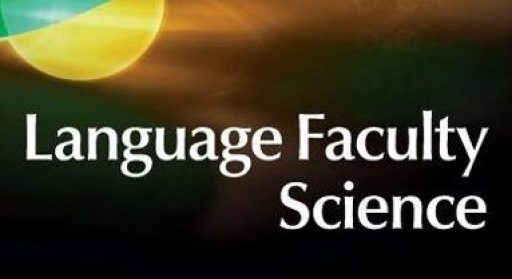What is Language Faculty Science (LFS)?
Language Faculty Science (LFS) seeks to uncover the initial state of the language faculty—the hypothesized universal part(s) of the mind that enable(s) us to relate sounds/signs to meaning—by applying the basic scientific method. This entails formulating hypotheses, deducing definite predictions, and conducting precise experimental testing to determine whether the results align with the predictions. A central goal of LFS is to demonstrate that part of the mind can be studied using the same scientific methodology employed in the physical sciences.
A defining feature of LFS is its commitment to the internalist conception of the language faculty, as advocated by Noam Chomsky, and its reliance on what physicist Richard Feynman describes as the “Guess-Compute-Compare” method, also known as the hypothetico-deductive method. This scientific process requires that we deduce definite predictions and conduct experimental testing to determine whether the results align with those predictions.
LFS differs fundamentally from most language-related research programs. While the latter typically analyzes observable patterns in language, or more precisely, observable patterns in linguistic behavior, by focusing on averages within groups, the former focuses on definite and categorical correlations within and across individuals in terms of what is impossible. LFS is concerned with the hypothesized system that underlies linguistic behavior, including the making of linguistic judgments. Due to its strict commitment to Guess-Compute-Compare, LFS focuses on what can lead to rigorously disconfirmable predictions rather than simply describing linguistic phenomena.
Crucially, the predictions in LFS take the form of disconfirmable universal predictions, specifically stating that certain meaning relations between two linguistic expressions, X and Y, are impossible, given that unwanted noise has been independently identified, such as unwanted noise due to the choice of X and that of Y, and controlled for. However, for such an observed impossibility, precisely in line with the prediction, to be significant, we must ensure that the impossibility is specifically due to the factors we have deduced it from, not some other incidental factors. We thus try to obtain “possible” cases that are minimally different from the impossible cases to show that unacceptability in the latter is not due to incidental factors.
Thus, experimental results are meaningful only if they establish both (i) the predicted impossibility and (ii) the contrast with possible cases. These results must then be replicated exceptionlessly across individuals, regardless of their specific language backgrounds.
How Does LFS Aspire to Achieve Its Goal?
A notable feature of LFS is its emphasis on an individual (of a particular language) and the universal replication of experimental results with any other individual, regardless of their linguistic background. The pursuit of universal replication is made possible by adopting the correlational methodology, which requires analyzing how linguistic judgments correlate both within an individual speaker and across different individuals. An individual speaker’s judgments on a particular sentence pattern do not always remain the same, but the correlations between their judgments on different sentence patterns remain stable—and we maintain that this applies to any speaker of any language.
LFS investigates the language faculty by deducing, and systematically testing, definite correlational predictions. The research process follows these steps:
- Deducing definite correlational predictions about linguistic judgments made by an individual.
- Testing those correlational predictions through controlled experiments.
- Replicating the experimental results with any other individual, independent of their linguistic background.
1 has been achieved.
2 has been achieved in the most basic cases, with individual speakers.
3 has been achieved only in a preliminary way; we are still in the very early stages of this research program and much remains to be done for a satisfactory execution of 3. However, what has been done so far, though preliminary, is perhaps unparalleled by any previous attempts to replicate definite predictions that are indeed deduced from hypotheses.
Key Publications
- Language Faculty Science (Hoji, 2015, Cambridge University Press) – Introduces the foundational ideas of LFS.
- The Theory and Practice of Language Faculty Science (Hoji, Plesniak, & Takubo, 2023, De Gruyter Mouton) – Further develops LFS, emphasizing the crucial role of the correlational methodology, which has allowed LFS to take initial steps toward achieving its theoretical goals, though its development remains in an early stage.
- Daniel Plesniak’s 2022 USC Dissertation,Towards a Correlational Law of Language: Three Factors Constraining Judgement Variation – Has played an indispensable role in the development of LFS since Hoji 2015.
Note: LFS as a Theory-Laden Research Program
Unlike most language-related research programs—and, in fact, unlike most fields of research—LFS maintains that there are no facts without hypotheses. This position follows naturally from adopting Feynman’s Guess-Compute-Compare methodology: hypotheses about the language faculty guide the formulation of predictions, which are then tested experimentally. Since the language faculty itself is a hypothesized construct, LFS is not merely an empirical study of linguistic patterns but an investigation into the nature of a hypothesized mental faculty, making it an extreme instance of a theory-laden research program.
“Being theory-laden” is perhaps construed as something negative. However, the intended point here is that a research program being theory-laden does not have to mean that it is arbitrary or untrustworthy. On the contrary, LFS, with its utmost commitment to rigorous disconfirmability—through precise deduction of predictions and rigorous experimental testing—seeks to be the exact opposite: a research program dedicated to uncovering the universal properties of the language faculty with the highest attainable degree of scientific rigor and reproducibility.
